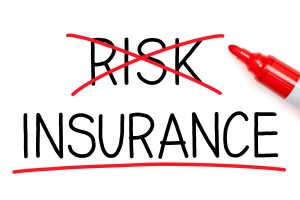India boasts of a deep-rooted history of insurance, finding mention in some of the ancient texts. These documents mention pooling of resources that could be re-distributed in the event of a calamity such as a flood or fire. While this may be the precursor to insurance in India, it has evolved over a period of time to come to be in the form we know today.
As per the Insurance Regulatory and Development Authority of India (IRDA), the history of general insurance in particular dates back to the Industrial Revolution in the West and the subsequent growth of trade and commerce in the 17th century. A legacy of the British Raj, insurance came to Indian shores back in 1850 in (then) Calcutta. Subsequently, the insurance sector in India has opened up tremendously and there are now 28 general insurance companies operating in the country, including the General Insurance Corporation of India (GIC), Export Credit Guarantee Corporation (ECGC) and Agriculture Insurance Corporation of India.
What is general insurance?
General insurance, also known as non-life insurance covers a range of eventualities including illness, damage to property or assets (house, car etc.) motor accidents etc. With adequate general insurance, it is possible to minimise the loss or damage owing to an unforeseen circumstance, be it an Act of God or an accident.
With so much being said about general insurance today, let us look at the various types of general insurance available to consumers today, along with the cover they provide:
Home Insurance – It is not only an individual, but also the assets they own that require adequate coverage in case any unforeseen event occurs. This comprehensive coverage normally includes not just the house or apartment itself, but also the contents therein, from electronic appliances to jewellery to furniture. Of course, do compare home insurance policies prior to purchase.
Health Insurance – This type of insurance tides you over financially in the case of hospitalisation owing to illness or an accident or mishap that occurs. The escalating costs of healthcare mean that without insurance, an individual would need to pay large sums out of pocket in the case of any eventuality. This facility includes cashless mediclaim coverage, pre- and post-hospitalisation expenses and ambulance charges.
Within the gamut of health insurance, you can opt for coverage for the entire family under a Family Floater Scheme, or for an individual.
Typically, health insurance includes:
- Personal accident cover
- Daily cash allowance in the case of hospitalisation
- Critical illness coverage
Travel Insurance – Going on the vacation of your dreams? Well, don’t let any unfortunate occurrence spoil your holiday. Travel insurance is a good idea to avail of when travelling, especially overseas. This coverage is especially useful as not only does it provide for financial assistance in case the policyholder is taken ill with travel health insurance, but also protects against lost or damaged baggage, delays in flight travel, theft or loss (of foreign exchange, in the case of trips abroad) and other incidental expenses.
Travel insurance covers various options, such as:
- Individual policies
- Family travel coverage
- Insurance for students travelling overseas for further education
Motor Insurance – This is critical coverage for owners of both four- and two-wheelers, and covers all damages and liability to your vehicle. Further, as per the Motor Vehicles Act, 1988, driving a vehicle without insurance in public is a punishable offense. Most policies are comprehensive and include coverage against physical damage to the vehicle, and also third party liability.
Common types of motor insurance include:
- Car insurance
- Two-wheeler insurance
- Commercial vehicle insurance
Commercial Insurance – This type of general insurance covers various sectors across industries ranging from manufacturing, automobile, chemical, transport and logistics etc. With this insurance coverage, not only property can be insured, but also employees (and benefits for them).
In conclusion
Having non-life insurance in place can protect not just you and your loved ones, but also your assets from loss and damage. As with any financial product, do make sure that you read the fine print before purchasing an insurance policy. With some careful research and planning, you can provide for the security of your family.
